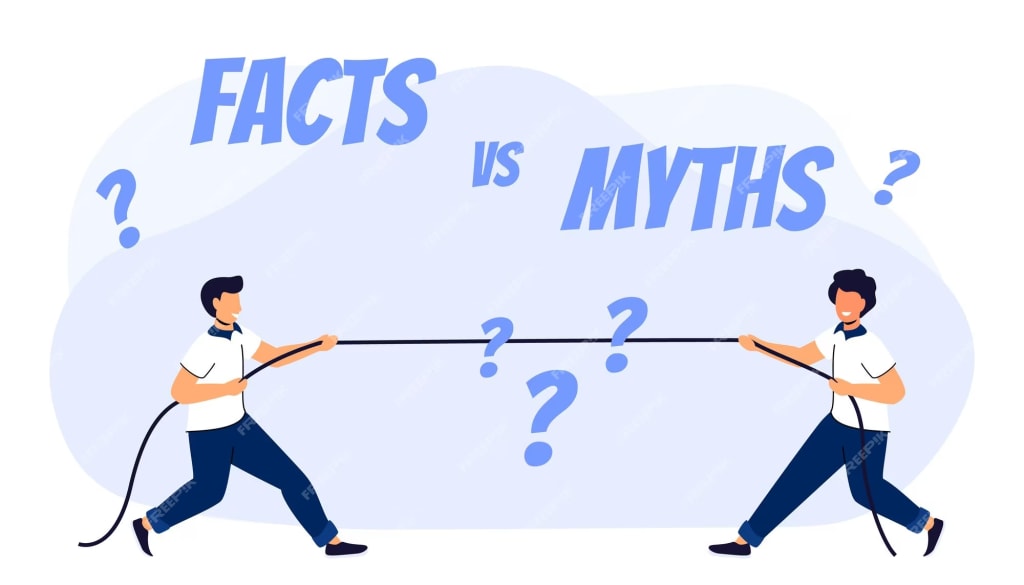Myths of Romantic Love: Debunking Common Misconceptions
9 Myth's for Love vs Relationships

Click Here to get Instant Access
## Introduction
Romantic love has always been a subject of fascination and intrigue for humans. It inspires poets, musicians, and artists to create beautiful works that capture the essence of this powerful emotion. However, along with the beauty and joy of romantic love, there are also many myths and misconceptions that surround it. These myths often shape our beliefs and expectations about love, leading to disappointment and confusion. In this article, we will explore some of the most common myths of romantic love and debunk them with evidence from psychological research.
Myth 1: Soulmates
One of the most prevalent myths about romantic love is the belief in soulmates. According to this myth, there is one perfect person out there who is destined to be our true love and soulmate. This notion suggests that finding this person will lead to a lifetime of happiness and fulfillment. However, research has shown that the concept of soulmates is more romantic idealism than reality.
Psychology researcher Carlos Yela Garcia argues that the belief in soulmates sets unrealistic expectations for relationships. It assumes that there is only one person who can fulfill all our emotional and romantic needs. In reality, relationships require effort, compromise, and compatibility. The idea of soulmates can be detrimental because it may lead individuals to overlook potential partners who don't fit their preconceived notions of a perfect match.
Myth 2: Exclusive Loving
Another myth of romantic love is the belief that we can only feel love for one person at a time. This myth suggests that once we are in a committed relationship, all our romantic and emotional desires should be directed exclusively towards our partner. However, research indicates that it is possible to experience love for multiple people simultaneously.
Psychological studies have found that individuals can have romantic feelings for more than one person, even while in a committed relationship. This phenomenon is known as "polyamory" or "consensual non-monogamy." It challenges the societal norm of exclusive loving and highlights the importance of open communication, honesty, and ethical behavior in relationships.
Myth 3: Sexual Fidelity
The myth of sexual fidelity asserts that in a monogamous relationship, all sexual desires and needs should be satisfied exclusively with one's partner. This belief often leads to the assumption that any form of sexual attraction or interest in someone outside the relationship is a betrayal. However, research suggests that human beings are naturally inclined to experience attraction towards others, even when in committed relationships.
Psychologist Esther Perel argues that the desire for novelty and variety is a fundamental aspect of human nature. She suggests that instead of viewing attraction outside the relationship as a threat, couples can explore ways to maintain a healthy sexual connection while acknowledging and communicating their desires and boundaries.
Myth 4: Jealousy as Love
Jealousy is often associated with love in popular culture, leading to the belief that if we are not jealous, we must not truly love our partner. However, jealousy is not a sign of love but rather a manifestation of insecurity and possessiveness. It stems from a fear of losing someone or a lack of trust in the relationship.
Psychologists emphasize the importance of distinguishing between healthy jealousy and unhealthy jealousy. Healthy jealousy involves feeling a mild sense of protectiveness and possessiveness towards a partner, while unhealthy jealousy is characterized by extreme possessiveness, control, and suspicion. It is important to address and overcome unhealthy jealousy through open communication and building trust.
Myth 5: Desire for Marriage
The myth that romantic love naturally leads to a desire for marriage is deeply ingrained in many cultures. This myth suggests that a committed romantic relationship should inevitably progress towards marriage. However, research shows that not everyone desires marriage, and there are various ways to experience and express love.
Sociologist Bella DePaulo argues that society often places undue importance on marriage as the ultimate goal of romantic love. She advocates for recognizing and celebrating diverse relationship choices, including singlehood, cohabitation, and non-traditional forms of partnership.
Myth 6: Eternal Passion
The myth of eternal passion perpetuates the belief that passionate love should remain intense and passionate throughout the duration of a relationship. This myth sets unrealistic expectations and can lead to disappointment when the initial spark begins to fade.
Psychological studies have found that the intense passion experienced at the beginning of a relationship, often referred to as the "honeymoon phase," is not sustainable in the long term. However, this does not mean that love becomes less meaningful or fulfilling over time. Love evolves and deepens into a more mature and companionate form, characterized by emotional intimacy, trust, and mutual support.
Myth 7: Falling in Love is Love's Maximum
The myth that falling in love represents the peak of romantic love suggests that once the initial infatuation fades, the love must be fading as well. This myth fails to acknowledge the different stages and dimensions of love.
Psychologist Robert J. Sternberg's Triangular Theory of Love proposes that love consists of three components: passion, intimacy, and commitment. While the initial "falling in love" stage is dominated by passion, long-lasting love involves the development of intimacy and commitment over time. True love is not confined to the intense emotions of infatuation but encompasses a deeper connection and understanding between partners.
Myth 8: Love Conquers All
The myth that "love conquers all" suggests that love alone is enough to overcome any obstacles or challenges in a relationship. While love is undoubtedly a powerful force, it is not a magical solution that can solve all problems.
Psychologists emphasize the importance of effective communication, compromise, and shared values in maintaining a healthy and fulfilling relationship. Love can provide a strong foundation, but it must be complemented by mutual respect, trust, and a willingness to work through difficulties together.
Myth 9: Monogamy is Universal
The myth that monogamy is the only acceptable form of romantic love is deeply ingrained in many societies. This myth assumes that everyone is naturally inclined towards monogamy and that any deviation from it is abnormal or immoral. However, research suggests that humans have diverse relationship orientations and preferences.
Anthropological studies have revealed that non-monogamous relationships, such as polygamy and polyamory, have been present in various cultures throughout history. It is essential to acknowledge and respect different relationship choices and understand that monogamy is not the only valid expression of love.
Click Here to get Instant Access
Conclusion
Debunking the myths of romantic love is crucial for developing realistic expectations and fostering healthy and fulfilling relationships. By recognizing that love is a complex and multifaceted emotion, we can embrace the diversity of human experiences and navigate the complexities of romantic relationships with greater understanding and empathy. Let go of the myths, and embark on a journey of love that is grounded in truth, communication, and mutual respect.
Affiliate Disclaimer
These Articles may contain affiliate links. If you make a purchase through these links, [Your Website Name] may earn a commission at no additional cost to you.
we strives to provide valuable and relevant content to its readers. The inclusion of affiliate links is one way we support the creation and maintenance of this website. We only recommend products or services that we believe will provide value to our audience.
Please note, that we do not have direct control over the content or policies of the third-party websites linked to, and we are not responsible for the practices employed by websites linked to or from our site. These sites may have their own privacy policies and customer service policies. Your interactions with those websites are subject to their terms and conditions.
By clicking on and using affiliate links, you acknowledge and agree to the terms and conditions outlined in this affiliate disclaimer. If you do not agree with these terms, please refrain from using our affiliate links.
Your use of affiliate links is entirely optional. If you prefer not to use affiliate links, you can navigate directly to the recommended products or services through non-affiliate links or conduct your own independent research.
We appreciates your support, which allows us to continue delivering valuable content to our readers.
About the Creator
RICHARD SMITH
Enjoy writing and reading other people's articles...
Enjoyed the story? Support the Creator.
Subscribe for free to receive all their stories in your feed. You could also pledge your support or give them a one-off tip, letting them know you appreciate their work.






Comments
There are no comments for this story
Be the first to respond and start the conversation.